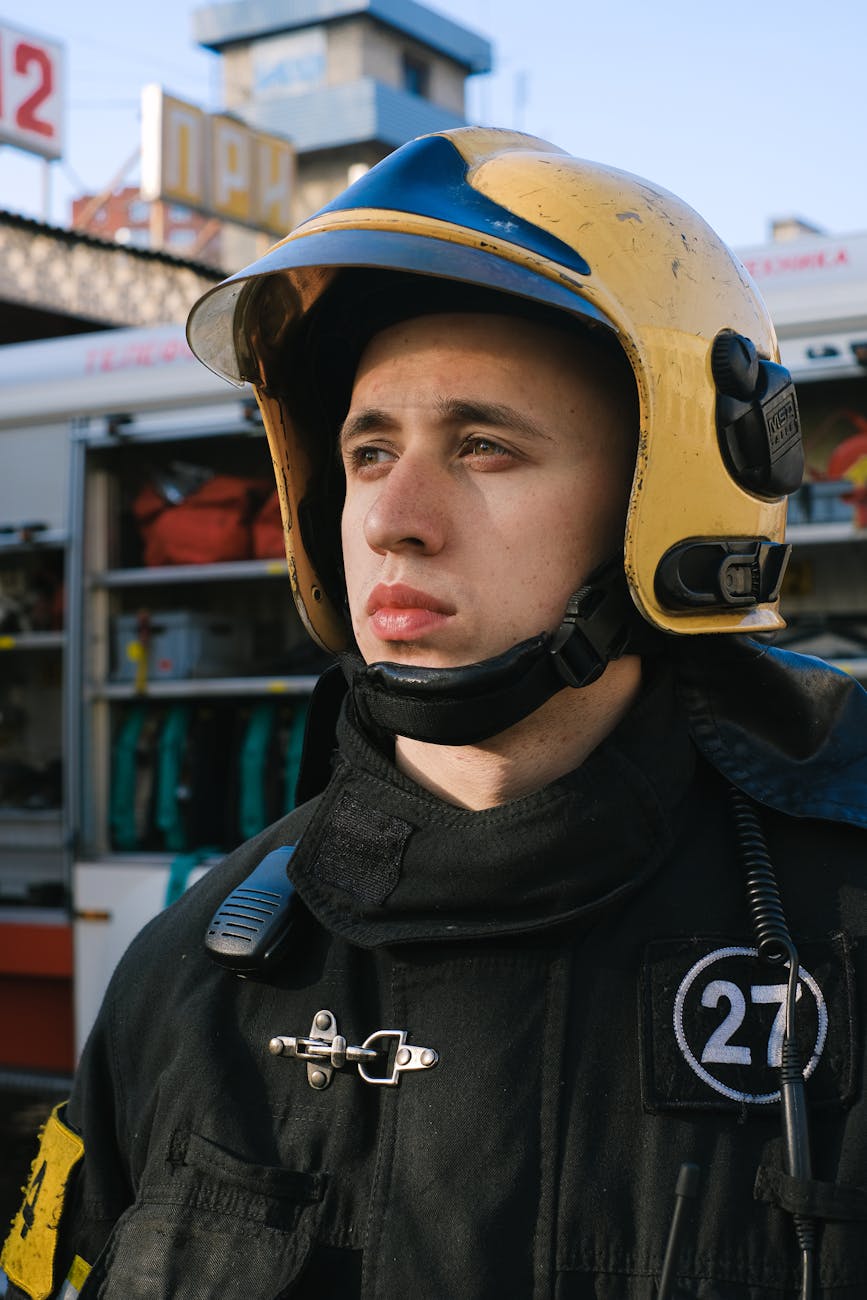
Fire Safety Officer Interview: 15 Questions & Best Responses
Introduction
Preparing for a Fire Safety Officer interview requires a strong understanding of fire prevention, emergency response protocols, and regulatory compliance. Employers look for candidates with technical knowledge, problem-solving skills, and the ability to handle high-pressure situations.
This guide covers 15 common Fire Safety Officer interview questions, along with best responses to help you make a strong impression.
15 Fire Safety Officer Interview Questions & Best Responses
1. What motivated you to become a Fire Safety Officer?
Best Response:
“I’ve always been passionate about public safety and preventing disasters. Fire safety combines my interest in risk assessment, emergency planning, and community protection. Ensuring buildings and workplaces are safe from fire hazards is a responsibility I take seriously.”
2. What are the key responsibilities of a Fire Safety Officer?
Best Response:
“A Fire Safety Officer is responsible for conducting fire risk assessments, ensuring compliance with fire safety regulations, organizing fire drills, inspecting fire safety equipment, training staff on emergency procedures, and investigating fire incidents to prevent future occurrences.”
3. How do you conduct a fire risk assessment?
Best Response:
*”I follow a structured approach:
- Identify fire hazards (e.g., electrical equipment, flammable materials).
- Determine who is at risk (employees, visitors).
- Evaluate existing safety measures (alarms, extinguishers, exits).
- Record findings and recommend improvements.
- Review and update the assessment regularly.”*
4. What fire safety regulations should a workplace comply with?
Best Response:
*”Key regulations include:
- The Regulatory Reform (Fire Safety) Order 2005 (UK)
- OSHA Fire Safety Standards (US)
- NFPA Codes (e.g., NFPA 101: Life Safety Code)
Compliance involves proper fire exits, alarms, extinguishers, staff training, and regular fire drills.”*
5. How would you handle an employee who ignores fire safety protocols?
Best Response:
“I would first explain the risks and consequences of non-compliance. If the behavior continues, I’d escalate the issue through formal warnings or additional training. Safety is non-negotiable, so enforcement may be necessary if education fails.”
6. What steps would you take after a fire incident?
Best Response:
*”After ensuring everyone is safe, I would:
- Secure the area and assist emergency responders.
- Investigate the cause (electrical fault, human error, etc.).
- Document the incident thoroughly.
- Review safety measures to prevent recurrence.
- Conduct a debrief with staff to improve future responses.”*
7. How do you ensure fire safety in high-rise buildings?
Best Response:
*”High-rises require:
- Compartmentation to slow fire spread.
- Clear evacuation plans with multiple escape routes.
- Regular fire door and sprinkler inspections.
- Staff training for high-rise evacuations.
- Advanced alarm systems for early detection.”*
8. What’s the importance of fire drills, and how often should they be conducted?
Best Response:
“Fire drills prepare occupants for emergencies, test evacuation routes, and identify weaknesses in procedures. They should be conducted at least twice a year, or more frequently in high-risk environments like hospitals or schools.”
9. How do you stay updated on fire safety laws and best practices?
Best Response:
“I regularly attend fire safety seminars, complete NFPA or IFE certifications, follow updates from fire authorities, and network with industry professionals to stay informed on evolving standards.”
10. What fire suppression systems are most effective in an office setting?
Best Response:
“Portable fire extinguishers (ABC type), automatic sprinklers, and smoke detectors are essential. For server rooms, clean agent systems like FM-200 are ideal since they don’t damage electronics.”
11. How would you train staff on fire safety?
Best Response:
*”I’d conduct interactive sessions covering:
- Fire hazards specific to their workplace.
- Proper use of extinguishers (PASS technique).
- Evacuation routes and assembly points.
- Emergency communication procedures.”*
12. What’s your approach to inspecting fire extinguishers?
Best Response:
*”I follow a monthly checklist:
- Check pressure gauges.
- Ensure seals are intact.
- Verify accessibility and visibility.
- Schedule professional servicing annually.”*
13. How do you assess evacuation routes for compliance?
Best Response:
*”I check that exits are:
- Clearly marked and unobstructed.
- Wide enough for occupant load.
- Equipped with emergency lighting.
- Leading to a safe assembly point.”*
14. What’s the biggest fire safety challenge you’ve faced, and how did you resolve it?
Best Response:
“In a previous role, we had blocked fire exits due to storage clutter. I implemented a strict policy, conducted surprise inspections, and held safety briefings. Within weeks, compliance improved significantly.”
15. Why should we hire you as our Fire Safety Officer?
Best Response:
“With my certifications in fire safety management, hands-on experience in risk assessments, and a proactive approach to training and compliance, I can ensure your facility meets the highest safety standards while fostering a culture of preparedness.”
Conclusion
Acing a Fire Safety Officer interview requires demonstrating technical knowledge, problem-solving skills, and a commitment to safety. By preparing strong responses to these questions, you’ll show employers you’re the right candidate for the job.
Onshore Safety Officer vs Offshore Safety Officer: A Detailed Comparison
Role of a Safety Officer in the Oil & Gas Industry
How to Become a Government Safety Officer?
What is the Highest Position in Fire?
Airport Fire Fighting Department (Qualification, Experience, Courses)
FAQs
What qualifications do I need to become a Fire Safety Officer?
Most employers require:
- A fire safety certification (e.g., NEBOSH, NFPA, IFE).
- Experience in fire risk assessments or emergency planning.
- Knowledge of local fire safety laws.
What skills are essential for a Fire Safety Officer?
- Risk assessment & hazard identification
- Knowledge of fire suppression systems
- Communication & training abilities
- Attention to detail
- Crisis management
How can I gain fire safety experience before applying?
- Volunteer with local fire departments.
- Take fire safety courses.
- Work in facilities management or health & safety roles.
What’s the career growth for a Fire Safety Officer?
With experience, you can advance to Fire Safety Manager, Health & Safety Director, or Consultant roles.
























